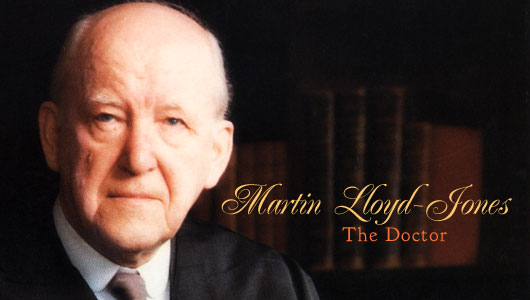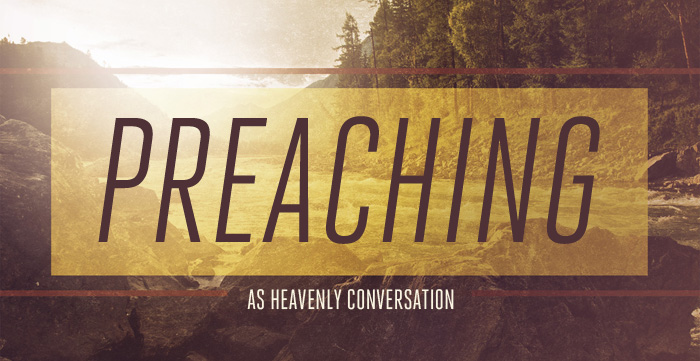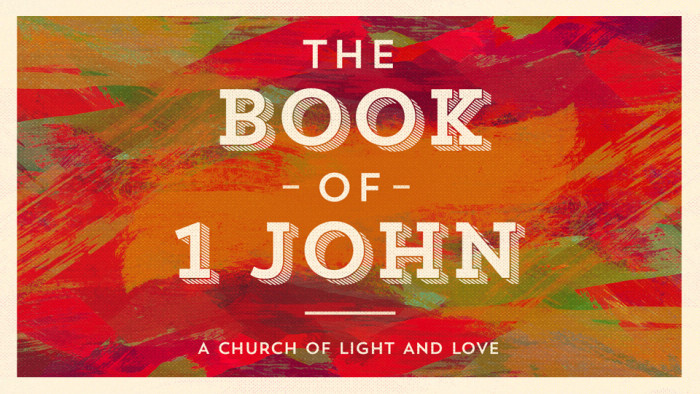“In order to get attention, make your manner as pleasing as it can possibly be. Do not, for instance, indulge in monotones. Vary your voice continually. Vary your speed as well–dash as rapidly as a lightning flash, and anon, travel forward in quiet majesty. Shift your accent, move your emphasis, and avoid sing-song. Vary the tone; use the bass sometimes, and let the thunders roll within; at other times speak as you ought to do generally–from the lips, and let your speech be conversational. Anything for a change. Human nature craves for variety, and God grants it in nature, providence and grace; let us have it in sermons also.” – Spurgeon, Lectures to My Students, 132.
Recent Reads
I love to read. By God’s grace I am a pretty fast reader; I usually read a couple books each week. I find it helpful to summarize my thoughts on each book and I offer those thoughts in the hope that you will be encouraged to either read or pass over the given title.
 The Weight of Glory by C.S. Lewis. I’ve never ventured far from Narnia when it comes to Clive Staples Lewis. A dabble in a Screwtape letter here and a jaunt through Mere Christianity there is about as far as I’ve gone. I can now add The Weight of Glory to my woefully small list of Lewis reads. TWG is a collection of nine sermons Lewis delivered during the World War II years in Britain. I’m sure it will be sacrilege to many for me to say, but in these addresses I find Lewis often dwelling in ho hum banter only occasionally breaking out with a brilliant insight like, “It would seem that Our Lord finds our desires not too strong, but too weak.” If you read only one address I’d stick to “The Inner Ring,” for here sheer brilliance reigns from start to finish.
The Weight of Glory by C.S. Lewis. I’ve never ventured far from Narnia when it comes to Clive Staples Lewis. A dabble in a Screwtape letter here and a jaunt through Mere Christianity there is about as far as I’ve gone. I can now add The Weight of Glory to my woefully small list of Lewis reads. TWG is a collection of nine sermons Lewis delivered during the World War II years in Britain. I’m sure it will be sacrilege to many for me to say, but in these addresses I find Lewis often dwelling in ho hum banter only occasionally breaking out with a brilliant insight like, “It would seem that Our Lord finds our desires not too strong, but too weak.” If you read only one address I’d stick to “The Inner Ring,” for here sheer brilliance reigns from start to finish.
 Look and Live: Behold the Soul-Thrilling, Sin-Destroying Glory of Christ by Matt Papa. To hear Papa sing or speak is to feel something of the earnestness of John the Baptist. At least that’s my experience. Papa is in love with Christ and is passionate in his appeal for others to join in on the glory. These traits, and many more, are available for all to see in Papa’s excellent book Look and Live. He is spot on to say, “We don’t need more willpower. We don’t need to get ourselves together. We need a greater thrill . . . a more captivating beauty. What we need is a vision of God. We need to see glory.” Drawing on many mighty men of old and the modern twin towers of Piper and Keller, Papa shows how a glorious vision of Christ helps us slay sin, preach the gospel, and live courageously in the world. If the book has any downfall it’s that Papa’s thoughts often come out as individual exhortations (i.e. he writes a lot of one line paragraphs), instead of developed arguments and declarations. But that does remind you a bit of the Baptist doesn’t it? Pick up a copy of this fine book and thrill yourself with the greatness of Christ.
Look and Live: Behold the Soul-Thrilling, Sin-Destroying Glory of Christ by Matt Papa. To hear Papa sing or speak is to feel something of the earnestness of John the Baptist. At least that’s my experience. Papa is in love with Christ and is passionate in his appeal for others to join in on the glory. These traits, and many more, are available for all to see in Papa’s excellent book Look and Live. He is spot on to say, “We don’t need more willpower. We don’t need to get ourselves together. We need a greater thrill . . . a more captivating beauty. What we need is a vision of God. We need to see glory.” Drawing on many mighty men of old and the modern twin towers of Piper and Keller, Papa shows how a glorious vision of Christ helps us slay sin, preach the gospel, and live courageously in the world. If the book has any downfall it’s that Papa’s thoughts often come out as individual exhortations (i.e. he writes a lot of one line paragraphs), instead of developed arguments and declarations. But that does remind you a bit of the Baptist doesn’t it? Pick up a copy of this fine book and thrill yourself with the greatness of Christ.
 In the Kingdom of Ice: The Grand and Terrible Polar Voyage of the USS Jeanette by Hampton Sides. My wife got me Sides’ latest for Christmas and I went into it with a sense of frigid expectation. Thoughts of arctic expeditions in our modern time are enough to chill the bones, let alone an expedition that set sail in 1879. Furthermore, the book’s subtitle demands the reader steel his gaze from the outset lest he be unduly disappointed. The Jeanette‘s journey to the North Pole captured our nation’s attention in the late 1800s and for good measure: no one really knew what lay up in the cold dome. A lost civilization? An open polar sea? A paradoxically warm climate? Or just loads of ice? The story of Captain De Long’s men is one Sides is perfectly suited to tell and my, my does he tell it well. The pages turn quickly in this one; fascination, elation, and trepidation await. And yes, they come in that order.
In the Kingdom of Ice: The Grand and Terrible Polar Voyage of the USS Jeanette by Hampton Sides. My wife got me Sides’ latest for Christmas and I went into it with a sense of frigid expectation. Thoughts of arctic expeditions in our modern time are enough to chill the bones, let alone an expedition that set sail in 1879. Furthermore, the book’s subtitle demands the reader steel his gaze from the outset lest he be unduly disappointed. The Jeanette‘s journey to the North Pole captured our nation’s attention in the late 1800s and for good measure: no one really knew what lay up in the cold dome. A lost civilization? An open polar sea? A paradoxically warm climate? Or just loads of ice? The story of Captain De Long’s men is one Sides is perfectly suited to tell and my, my does he tell it well. The pages turn quickly in this one; fascination, elation, and trepidation await. And yes, they come in that order.
 The Expats by Chris Pavone. Evidently Pavone made the change from editing cookbooks and garden tomes to writing spy novels with the publication of The Expats. This fun read centers on Kate Moore, a former CIA operative who is relegated to domestic duty at home when her husband takes a new job in Luxembourg. Soon enough Kate’s covert tendencies involuntarily take over when as she begins to doubt the veracity of her husband, her friends, and—well, just about everyone. Pavone’s book, while thoroughly enjoyable, does recede into the ridiculous at times in the elements of espionage Kate employs. But Pavone redeems the silliness by saving his best for the end. The book’s final chapters are mesmerizingly constructed and make one eager for what the author might cook up next.
The Expats by Chris Pavone. Evidently Pavone made the change from editing cookbooks and garden tomes to writing spy novels with the publication of The Expats. This fun read centers on Kate Moore, a former CIA operative who is relegated to domestic duty at home when her husband takes a new job in Luxembourg. Soon enough Kate’s covert tendencies involuntarily take over when as she begins to doubt the veracity of her husband, her friends, and—well, just about everyone. Pavone’s book, while thoroughly enjoyable, does recede into the ridiculous at times in the elements of espionage Kate employs. But Pavone redeems the silliness by saving his best for the end. The book’s final chapters are mesmerizingly constructed and make one eager for what the author might cook up next.
Click here to find other entries in the Recent Reads series.
5 Minutes with Dever & Keller
In his classic book Preaching and Preachers Martyn Lloyd-Jones asks, “What is the chief end of preaching? I like to think it is this. It is to give men and women a sense of God and His presence.”
The Doctor evidently didn’t think he hit the mark very often for he once said, “I can say quite honestly that I would not cross the road to listen to myself preaching.” The venerable J.I. Packer would beg to disagree. When Packer was a 22-year-old student he heard Lloyd-Jones preach each Sunday evening during the school year of 1948–1949. He said that he had “never heard such preaching.” It came to him “with the force of electric shock, bringing to at least one of his listeners more of a sense of God than any other man” he had known.1
Lloyd-Jones has affected untold preachers over the last few decades, two of whom are Mark Dever and Tim Keller. The latest 9Marks Interview finds Dever discoursing with The Manhattan Man on the latter’s biography and early ministry. Tucked away at the interview’s end is Dever’s question of how The Doctor influenced Keller’s preaching. What ensues is an edifying dialogue on the role of tone, personality, and power in preaching.
Listen to the short segment below and the download the whole interview here.
————————————————————————————————————
Look Here, Not There
“On Christ’s glory I would fix all my thoughts and desires, and the more I see of the glory of Christ, the more the painted beauties of this world will wither in my eyes and I will be more and more crucified to this world. It will become to me like something dead and putrid, impossible for me to enjoy.” – John Owen, The Glory of Christ, 7.
Conversational Preaching
R.E.O. White once talked about ineffective preaching as being “a monstrous monologue by a moron to mutes.” He was on to something. For the best preaching, while appearing to be a monologue on the surface, is in fact a silent dialogue between the preacher and his hearers.
I’m not thinking here of conversational preaching as the preacher and congregation physically speak back and forth to one another during the sermon.1 Instead, I have in mind the spiritual—unspoken—conversation happening while he preaches and they listen.
Tone Is Something, But Not Everything
We must recognize from the outset that dialogical preaching is not merely a matter of tone. Sure, some preachers have unique personalities and moods especially suited to creating spiritual, unspoken conversation during an exposition (Tim Keller comes to mind here). So tone is important. But if you’ve ever listened to a Matt Chandler sermon you know he’s got about one volume level in delivery—LOUD—and he still effectively draws in his hearers. Thus, tone isn’t everything.
What then are some things preachers might do, if tone isn’t the silver bullet, to stir up silent dialogue in their preaching?
Helps to Conversational Preaching
The first non-negotiable is knowing the sheep. Everything that follows in this post assumes a pastor has a vibrant, growing knowledge of those entrusted to his care. Preaching week after week to the same congregation will lose its fresh power if the pastor isn’t increasing in his awareness of the flock’s spiritual condition. How else can he speak to their current experience? How else can he wisely and pointedly apply the text? Knowing the sheep is the cornerstone of conversational preaching.
A second friend is anticipating objections. This Saturday I hope to preach on 1 John 2:18-27, which includes this little puzzler, “But the anointing that you received from him abides in you, and you have no need that anyone should teach you” (1 Jn. 2:27). The current draft of my manuscript asks at this point, “What does John mean here about not needing teachers? Has he just put all preachers like me out of a job?” Anticipating objections invites the hearer into the conversation the preacher has had with the text all week.
One caution on this point is in order: we ought not insert common objections scholars have about a text that not of our people have. For example, maybe you are preaching through a series on the pastoral epistles. At the outset you could say something like, “The objections to Pauline authorship deserve serious consideration and are as follows . . .” Now, maybe you think you’ve just served to increase silent dialogue, but in reality you’ve likely inserted doubt into places it had never before existed. The commentators will quibble where the average laymen doesn’t. Furthermore, the immediate objections my church has to Paul’s great gospel teaching in Ephesians 2:1-10 will likely be somewhat different than those of a mainline church in San Francisco. Anticipate then the objections your people will have.
In his masterful Between Two Worlds John Stott writes,
One of the greatest gifts a preacher needs is such a sensitive understanding of people and their problems that he can anticipate their reactions to each part of his sermon and respond to them. Preaching is rather like playing chess, in that the expert chess player keeps several moves ahead of his opponent, and is always ready to respond, whatever piece he decides to move next.
Another aid for feeding the spiritual dialogue is using rhetorical questions. Sprinkle these liberally throughout your sermon just as you should douse tortilla chips with a healthy dose of salt. Rhetorical questions can be used during explanation, illustration, and application. Last week I preached a sermon on not loving the world from 1 John 2:15-17 and asked near the start, “What do you think about the world? What comes to mind when you hear Christians and churches speak about the topic of ‘worldliness’?” After walking through John’s warning about the dangerous power of worldliness I asked, “Have you noticed your love for God waning recently? Did you feel your devotion and joy in Christ vanish this week? Our text says it’s probably because your love for the world is raging in fresh ways.”
We can ask questions we intend to answer from the text or ask questions we intend the hearer to answer from his or her experience. Rhetorical questions tease out understanding, cement meaning, and challenge the mind to think specifically.
A final tool on the topic is something I’ll call conditional application. Don’t be afraid to say something like, “If you’re in here today and are not a Christian . . .” or, “Maybe you feel embittered toward God.” These conditional statements are launching pads for not only pointed application, but for specific silent dialogue. They summon particular individuals to attention with what’s about to come in the sermon. We could think of conditional applications as personal invitations to encounter God’s truth.
The Point of It All
Conversational preaching is preaching that connects and confronts. It connects the hearer’s inner experience to the objective content of God’s word. It confronts the hearer with God’s word by calling for responses suitable to the individuals spiritual state.
Revelation and response.
Connection and confrontation.
Declaration and dialogue.
May this be our aim when we ascend to the sacred desk.
———————————————————————————————–
- You’d have to do something crazy with κηρύσσω (keruso; Greek for “to preach,”) to turn heralding God’s word completely into dialoging about God’s word. ↩
A Blessed Beating
“[The gospel] is also the principal article of all Christian doctrine, wherein the knowledge of all godliness consists. Most necessary it is, therefore, that we should know this article well, teach it unto others, and beat it into their heads continually.” – Martin Luther, St. Paul’s Epistle to the Galatians, 206.
Book to Look For: On Bible Meditation
Depending on your background the practice of meditation may sound thoroughly orthodox or totally New Age. We ought to think of it as utterly biblical.
No book in the Bible speaks more frequently about meditation than the Psalms. Psalm 1 says the blessed man meditates on God’s law day and night. In Psalm 63 David speaks of a deep thirsting after the Lord which leads him to meditate upon the God’s greatness during the night. Psalm 119:148 says, “My eyes are awake before the watches of the night, that I may meditate on your promise.”
Let the Puritans Guide the Way
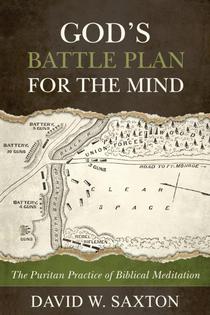 One group in church history that understood the usefulness of meditation was the Puritans. Joel Beeke writes, “The Puritans never tired of saying that biblical meditation involves thinking upon the Triune God and His Word. By anchoring meditation in the living Word, Jesus Christ, and God’s written Word, the Bible, the Puritans distanced themselves from the kind of bogus spirituality or mysticism that stresses contemplation at the expense of action, and flights of the imagination at the expense of biblical content.
One group in church history that understood the usefulness of meditation was the Puritans. Joel Beeke writes, “The Puritans never tired of saying that biblical meditation involves thinking upon the Triune God and His Word. By anchoring meditation in the living Word, Jesus Christ, and God’s written Word, the Bible, the Puritans distanced themselves from the kind of bogus spirituality or mysticism that stresses contemplation at the expense of action, and flights of the imagination at the expense of biblical content.
During the seventeenth century, English Puritan pastors often encouraged their congregations in the spiritual discipline of meditating on God and His Word. Today, however, much of evangelicalism is either ignorant of or turned off to the idea of meditation. In God’s Battle Plan for the Mind, pastor David Saxton seeks to convince God’s people of the absolute necessity for personal meditation and motivate them to begin this work themselves. But he has not done this alone. Rather, he has labored through numerous Puritan works in order to bring together the best of their insights on meditation. Standing on the shoulders of these giants, Saxton teaches us how to meditate on divine truth and gives valuable guidance about how to rightly pattern our thinking throughout the day. With the rich experiential theology of the Puritans, this book lays out a course for enjoying true meditation on God’s Word.
You Can’t Love the World and . . .
–This post is adapted from my recent sermon, “The Light of Eternity,” on 1 John 2:15-17.–1
One of the more interesting things about 1 John is that the apostle is much more concerned with declarations than duties. Have you noticed how he’s consumed with declarations of truth and reality? We been in his message for a month and it’s not until 2:15 we encounter John’s first command. In fact, 1 John has fewer commands, in terms of their percent to the whole letter, than any book in the New Testament. Thus, we want to give unique attention to those imperatives he does give us.
His point in our three verses is piercing: Love for the world is incompatible love for God. Just as Jesus said you can’t love two masters, John says only one thing can ultimately captivate your affection: the world or the Father. It’s a clear separation we want to see and feel. What we want to experience from this text is what John says about the nature of true faith: Authentic faith is the treasuring of God above all else. Genuine Christians are those who, more than anything in this world—power, pleasure, possessions—treasure the surpassing beauty and glory of God.
YOU CAN’T LOVE THE WORLD AND LOVE THE FATHER
2:15 says, “Do not love the world or the things in the world.” That’s the command, but notice the verses also give us a warning, “If anyone loves the world, the love of the Father is not in him.” We must remember the Bibles warnings are not restrictions from an irritated God who doesn’t want us to enjoy ourselves. Nor are they relics of a bygone era, irrelevant to those of us in the 21st century. God’s warnings are expressions of His mercy and wisdom, given for our good to protect us from sin and its consequences. “Love for the world,” John warns, “proves you don’t love the Father.”
We need to think rightly about what John means here when he says, “Do not love the world.” Throughout John’s gospel and letters “the world” is a phrase used in different ways depending on the context. An over-simplification of it is that there are two ordinary ways to understand “the world”:
2 Ways to Understand Loving the World
- Loving the world as the holy love of redemption. Think of John 3:16 here, “For God so loved the world,” He sent Jesus to die for sin. That’s a love for the world we should emulate and cultivate in our lives. But that’s not what John is talking about here. He’s talking about . . .
- Loving the world as the selfish love of participation. This is how John most commonly refers to the world in 1 John. If you sat down and read through the whole letter in one sitting you’d notice how, for John, the world is the devil’s playground. It currently lies in his grip, 1 John 5:19 says.
I had a friend several years ago whose favorite home appliance was a vacuum sealer. He’d routinely make a large batch of some kind of food, divide it up into small plastics bag, turn on his cherished device and suck every ounce of air from the bags.
John’s telling us love for the world function like Satan’s vacuum sealer. Cherished worldly desires suck out the life in our love for God. Have you noticed your love for God waning recently? Does it feel as though your devotion and joy in Christ is disappearing? Our text says it’s probably because your love for the world is raging in fresh ways. You can’t love the world and love the Father.
Throughout the ages of Christianity people have often defined worldliness as living outside a specific set of rules or conservative standards. If you listen to music with a certain beat, dress in fashionable clothes, watch movies of a certain rating, or indulge in certain luxuries of modern society, you must be worldly. Others have called out these fundamentalist tendencies and assumed worldliness is impossible to adequately define, so we shouldn’t even bother with it.
Yet John, inspired by the Holy Spirit, cuts through both false ideas by taking us the debate down to its true level: to the heart. For that’s where worldliness is. Notice what he says in 2:16, “For all that is in the world—the desires of the flesh and the desires of the eyes and pride of life—is not from the Father but is from the world.”
He gives us three perspectives on worldliness. Let’s take each one in turn.
- “The desires of the flesh.” This is quite broad, it has in mind any sinful interest that draws us away from God or any sinful passion that makes fellowship with God impossible. We might think of this as the preoccupation or obsession with things of the flesh. For many today this it’s something like the preoccupation with physical pleasure that often manifests itself in pornography, and physical gratification outside of God’s design in marriage. Or for others it’s the obsession with body image, the compulsive chiseling of a body that will soon lie in dust. Obsessive desires of the flesh chip away at one’s obsession with God.
- “The desires of the eyes.” The eyes are like window into the soul, giving us chances to not just see, but to covet. This is what happened with Eve in the Garden of Eden, she saw the fruit was pleasing to the eye (Gen. 3:6). This is what happened with David when he committed adultery with Bathsheba, he saw “the woman was very beautiful” (2 Sam. 11:2). The old children’s song is right when it warns, “Oh be careful little eyes what you see.” What sights consume you vision each day? Satan loves paint and put pretty things in front of you and dare you to resist. Sometimes his schemes are overt, but most of the time they are covert. He’s ripping apart your love for God with all kinds of little things your eyes take in each day. Satisfying the sinful desires of your eyes steals captivation with God’s beauty.
- “The pride of life.” One way to translate this phrase, and better captures the meaning John has, is, “The pride of possessions.” In this perspective worldliness is the boastful pleasure in what you are in the world and what you have in the world. The worldliness of pride puts self on the stage and says, “Gaze upon my greatness.” We do this in so many subtle ways. How often in a conversation do you insert something about your life, so that people might be impressed?
What are you tempted to love more than God? How you answer that question exposes the place where worldliness has crept into your heart.
So then, what is worldliness? From 2:16 here’s my definition: the gratification and exaltation of oneself to the exclusion of God. 2 It’s to cherish the treasure of me more than the treasure of God.
You can’t love the world and love the Father. Notice now in 2:17 how John says, “You Can’t Love the World and Live Forever.”
YOU CAN’T LOVE THE WORLD AND LIVE FOREVER
He writes in 2:17, “And the world is passing away along with its desires, but whoever does the will of God abides forever.” As sure as any snow that falls in Texas will eventually melt, so too will this world and its desires pass away. So John’s point is, “Why on earth would you preoccupy yourself with them?” Pray for God to protect you from, what John Owen called, “living affections to dying things.” Did you see the promise in 2:17? “Whoever does the will of God abides forever.” Spirit-wrought obedience is the great seal of salvation and gives assurance of life everlasting. There is no future whatsoever in the things of this world, but there is a future in godliness. As Paul says in 1 Timothy 4:8, godliness “holds promise for the present life and also for the life to come.” Love the world and die forever, or love the Father and live forever—which will you choose?
Last year when I turned thirty I had spent time considering my first three decades of life, my successes and failures. I found myself resonating with Philip Henry, the father of Matthew Henry, who said at the dawning of his fourth decade: “So old and older than Alexander when he conquered the great world; but I have not subdued the little world of myself.” 3 Have you ever felt that way? Maybe you are even feeling that way now, in light of our text?
The Bible’s warnings intend to call us to sober self-examination. While being a vital thing, examination is a dangerous thing. The Spirit means for it to stir us to conviction, yet Satan means for it to stir us to condemnation. The Wicked Worm loves to speak into your hearts lies like, “You’ll never be able to give up the things of earth you love so much. You are beyond hope.”
You are beyond hope if you try to overcome the world with your own strength of self-denial. You are beyond hope if you try to conquer desires of the flesh, desires of the eyes, and the pride of life with strenuous, near monastic self-control. So how can we overcome? Flip over to 1 John 5:4, “For everyone who has been born of God overcomes the world. And this is the victory that has overcome the world—our faith.” Faith in Jesus makes one born again, and the new birth severs our satisfaction with the world. He overcame so that we might overcome. Authentic faith is the treasuring of Christ above all else.
—————————————————————————————————–
- What’s with all the color in this text? See my post, “Colorful Preaching,” on why I color code my sermon manuscripts. ↩
- Adapted from Mahaney, Worldliness. ↩
- Quoted in Beeke, Overcoming the World, 36. ↩
Convince Them with Holiness
“Without a sacred weight of character, the most splendid [preaching] will win only a short-lived applause; with it, the plainest scriptural instructions are eloquent to win souls. Eloquence may dazzle and please; holiness of life convinces.” – Dabney, Evangelical Eloquence, 263.
Recent Reads
I love to read. By God’s grace I am a pretty fast reader; I usually read a couple books each week. I find it helpful to summarize my thoughts on each book and I offer those thoughts in the hope that you will be encouraged to either read or pass over the given title.
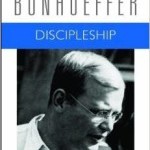 Discipleship by Dietrich Bonhoeffer. This work is better known in America as The Cost of Discipleship. Bonhoeffer’s collective ruminations on truly following Christ has been a spiritual classic for decades. I’ve started and stopped this work numerous times, largely because I find myself in such agreement that I think, “Ok, I get the point and I completely agree. Time to move on.” Just this week I finally made it all the way through to the end. Bonhoeffer’s main contribution to our understanding of discipleship is his taxonomy on grace: cheap grace versus costly grace. He says,
Discipleship by Dietrich Bonhoeffer. This work is better known in America as The Cost of Discipleship. Bonhoeffer’s collective ruminations on truly following Christ has been a spiritual classic for decades. I’ve started and stopped this work numerous times, largely because I find myself in such agreement that I think, “Ok, I get the point and I completely agree. Time to move on.” Just this week I finally made it all the way through to the end. Bonhoeffer’s main contribution to our understanding of discipleship is his taxonomy on grace: cheap grace versus costly grace. He says,
Cheap grace is the preaching of forgiveness without requiring repentance, baptism without church discipline, Communion without confession, absolution without personal confession. Cheap grace is grace without discipleship, grace without the cross, grace without Jesus Christ, living and incarnate.
After a prolonged meditation on discipleship Bonhoeffer proceeds to exposition of the Sermon on the Mount, which is followed by instruction on Matthew 10 and “The Messengers.” Bonhoeffer’s exegesis is questionable at points and his Lutheran convictions ring out in the book’s final section on the church. Nevertheless, this is a valuable work for our age that wonders if radical calls to obedience are necessary.
 Life Together & Prayerbook of the Bible by Dietrich Bonhoeffer. From 1935-1937 the Finkenwalde seminary provided an occasion for Bonhoeffer to construct something he’d always longed for: the construction of a Christian community based on the Sermon on the Mount. As I read the book I couldn’t help but think of the Finkenwalde experiment as something like evangelical monasticism. Bonhoeffer created a routine of Scripture reading, prayers, meditation, work, singing, confession, and communion that would make the old monks proud. This is not to say I disagree with what Bonhoeffer built. I actually am quite sympathetic to his encouragement of systematically partaking of the means of grace. One thing a reader of Life Together can’t miss is Bonhoeffer’s prioritization of the Psalms for ordinary life in Christ. Thus, it only makes sense for this edition of Bonhoeffer’s Works to couple Life Together with The Prayerbook of the Bible, his brief commentary and application of the Psalms.
Life Together & Prayerbook of the Bible by Dietrich Bonhoeffer. From 1935-1937 the Finkenwalde seminary provided an occasion for Bonhoeffer to construct something he’d always longed for: the construction of a Christian community based on the Sermon on the Mount. As I read the book I couldn’t help but think of the Finkenwalde experiment as something like evangelical monasticism. Bonhoeffer created a routine of Scripture reading, prayers, meditation, work, singing, confession, and communion that would make the old monks proud. This is not to say I disagree with what Bonhoeffer built. I actually am quite sympathetic to his encouragement of systematically partaking of the means of grace. One thing a reader of Life Together can’t miss is Bonhoeffer’s prioritization of the Psalms for ordinary life in Christ. Thus, it only makes sense for this edition of Bonhoeffer’s Works to couple Life Together with The Prayerbook of the Bible, his brief commentary and application of the Psalms.
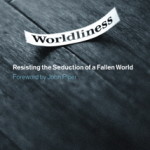 Worldliness: Resisting the Seduction of a Fallen World edited by C.J. Mahaney. Mahaney, in my view, is right to say, “Today, the greatest challenge facing American evangelicalism is not persecution from the world, but seduction by the world.” A common topic of discussion in centuries past, the issue of worldliness seems to have receded from the broader evangelical world today. With the big “L Word” (legalism) lurking around every corner few people seem concerned with the danger of loving the world. Yet Scripture unalterably warns against lurking worldliness (1 John 2:15-17). The Sovereign Grace men do a fantastic job in this book offering winsome counsel towards crucifying desires for the world. Resisting the temptation to offer unbiblical prescriptions, each chapter offers sound wisdom on matters of media, modesty, music, and living faithfully in the world. Highly recommended!
Worldliness: Resisting the Seduction of a Fallen World edited by C.J. Mahaney. Mahaney, in my view, is right to say, “Today, the greatest challenge facing American evangelicalism is not persecution from the world, but seduction by the world.” A common topic of discussion in centuries past, the issue of worldliness seems to have receded from the broader evangelical world today. With the big “L Word” (legalism) lurking around every corner few people seem concerned with the danger of loving the world. Yet Scripture unalterably warns against lurking worldliness (1 John 2:15-17). The Sovereign Grace men do a fantastic job in this book offering winsome counsel towards crucifying desires for the world. Resisting the temptation to offer unbiblical prescriptions, each chapter offers sound wisdom on matters of media, modesty, music, and living faithfully in the world. Highly recommended!
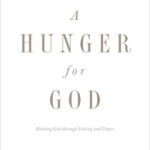 A Hunger for God: Desiring God through Fasting and Prayer by John Piper. One of my endeavors for 2015 is to grow in the practice of fasting. I turned to Piper’s book for counsel and encouragement in my own devotional life and he didn’t disappoint. A Hunger for God is classic Piper: rigorously biblical, deeply thoughtful, and occasionally loquacious. If you don’t want to read the whole book, at least pick up the free PDF here and read the first chapter, “Is Fasting Christian?”
A Hunger for God: Desiring God through Fasting and Prayer by John Piper. One of my endeavors for 2015 is to grow in the practice of fasting. I turned to Piper’s book for counsel and encouragement in my own devotional life and he didn’t disappoint. A Hunger for God is classic Piper: rigorously biblical, deeply thoughtful, and occasionally loquacious. If you don’t want to read the whole book, at least pick up the free PDF here and read the first chapter, “Is Fasting Christian?”
 A Serious Call to a Contemplative Lifestyle by Glenn Hinson. What a puzzle this slim volume volume is. For over thirty years Hinson was the professor of church history at The Southern Baptist Theological Seminary. But go ahead an throw out any notions of classic Baptist spirituality right now. Hinson advocates process theology, sympathetic to the evolutionary philosophy of Teilhard, and mystical in his orientation. His contemplative model of spirituality says, “God loves you. Love God back through contemplation on His loving essence.” I did enjoy his pleas for simplicity in life and the importance of meditative prayer, yet his almost utter disregard for God’s word as a means of grace makes his “serious call” . . . well, not that serious at all.
A Serious Call to a Contemplative Lifestyle by Glenn Hinson. What a puzzle this slim volume volume is. For over thirty years Hinson was the professor of church history at The Southern Baptist Theological Seminary. But go ahead an throw out any notions of classic Baptist spirituality right now. Hinson advocates process theology, sympathetic to the evolutionary philosophy of Teilhard, and mystical in his orientation. His contemplative model of spirituality says, “God loves you. Love God back through contemplation on His loving essence.” I did enjoy his pleas for simplicity in life and the importance of meditative prayer, yet his almost utter disregard for God’s word as a means of grace makes his “serious call” . . . well, not that serious at all.
 Ordinary Grace by William Kent Krueger. I’d seen Krueger’s latest novel on many “Best of 2014” lists, so I picked it up with high expectations and wasn’t let down. Set in New Bremen, Minnesota in the summer of 1961, Ordinary Grace is told through the eyes of Frank Drum – forty years after he experienced the events of 1961 as a somewhat rebellious thirteen-year-old. Several tragic deaths struck the quaint northern city that summer and we feel it through the emotions of the Drum household. As the death toll increases so does the angst and pain of investigating the loss of those you love. Krueger shows himself to be a master of pacing and well-textured characters. The “surprise” ending was foreseeable, and not totally believable, but don’t let that dissuade you from reading this one. A compelling read from start to finish.
Ordinary Grace by William Kent Krueger. I’d seen Krueger’s latest novel on many “Best of 2014” lists, so I picked it up with high expectations and wasn’t let down. Set in New Bremen, Minnesota in the summer of 1961, Ordinary Grace is told through the eyes of Frank Drum – forty years after he experienced the events of 1961 as a somewhat rebellious thirteen-year-old. Several tragic deaths struck the quaint northern city that summer and we feel it through the emotions of the Drum household. As the death toll increases so does the angst and pain of investigating the loss of those you love. Krueger shows himself to be a master of pacing and well-textured characters. The “surprise” ending was foreseeable, and not totally believable, but don’t let that dissuade you from reading this one. A compelling read from start to finish.
 Defending Jacob by William Landay. I once saw a review calling Defending Jacob a near identical twin to Scott Turow’s genre-creating work Presumed Innocent. Such talk demands a personal investigation, so off I went to get my own copy of the latest book to receive “The Next Presumed Innocent” award. Defending Jacob is indeed strikingly similar in tone to Turow’s classic. But don’t call it a copycat. Landay’s book stands on its own merits – which are many – and it draws you in from the prologue. Andy Barber is the assistant district attorney of a New England suburb stunned by the brutal death of a young boy in a leafy city park. For Barber the death is even more shattering: his son Jacob is accused of being the murderer. Two questions consume the reader as Jacob’s arrest and trial unfold: 1) Is Jacob a sociopath in the making? 2) Or is he simply a troubled kid in the wrong place at the wrong time? People Magazine says, “The shocking ending1 will have readers pulling up their bedcovers to ward off the haunting chill.” Such sentiment is a wee bit strong, but Defending Jacob does stick with you.
Defending Jacob by William Landay. I once saw a review calling Defending Jacob a near identical twin to Scott Turow’s genre-creating work Presumed Innocent. Such talk demands a personal investigation, so off I went to get my own copy of the latest book to receive “The Next Presumed Innocent” award. Defending Jacob is indeed strikingly similar in tone to Turow’s classic. But don’t call it a copycat. Landay’s book stands on its own merits – which are many – and it draws you in from the prologue. Andy Barber is the assistant district attorney of a New England suburb stunned by the brutal death of a young boy in a leafy city park. For Barber the death is even more shattering: his son Jacob is accused of being the murderer. Two questions consume the reader as Jacob’s arrest and trial unfold: 1) Is Jacob a sociopath in the making? 2) Or is he simply a troubled kid in the wrong place at the wrong time? People Magazine says, “The shocking ending1 will have readers pulling up their bedcovers to ward off the haunting chill.” Such sentiment is a wee bit strong, but Defending Jacob does stick with you.
Click here to find other entries in the Recent Reads series.
—————————————————————————————————————–
- For the record, the ending wasn’t a shock at all. It’s easy to predict if you pay attention to Jacob’s relationships in the book. ↩

